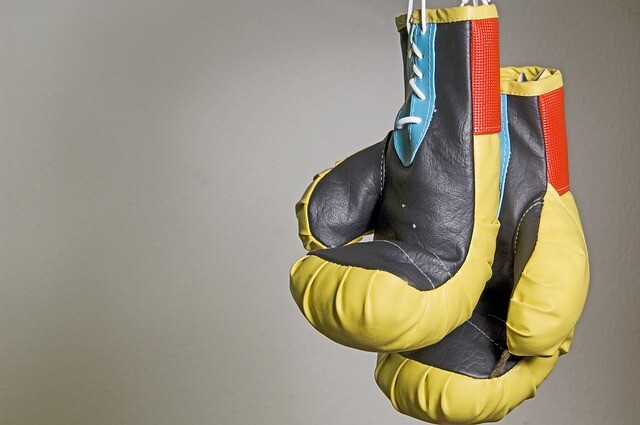 ‘I am the greatest!” or so proclaimed Muhammad Ali – at the time, still known by his birth name, Cassius Clay – in February, 1964, shortly before becoming world heavyweight champion for the first time. On February 25, 1964, in his first meeting with Sonny Liston in Miami, Florida, Clay scored a shock technical knockout when the ‘big, ugly bear’, as he repeatedly called his opponent, failed to answer the bell for the seventh round. The pair met again in Lewiston, Maine on May 25, 1965, by which time Clay had joined the Nation of Islam and changed his name to Muhammad Ali; Ali won again, by first-round knockout.
‘I am the greatest!” or so proclaimed Muhammad Ali – at the time, still known by his birth name, Cassius Clay – in February, 1964, shortly before becoming world heavyweight champion for the first time. On February 25, 1964, in his first meeting with Sonny Liston in Miami, Florida, Clay scored a shock technical knockout when the ‘big, ugly bear’, as he repeatedly called his opponent, failed to answer the bell for the seventh round. The pair met again in Lewiston, Maine on May 25, 1965, by which time Clay had joined the Nation of Islam and changed his name to Muhammad Ali; Ali won again, by first-round knockout.
Born in Louisville, Kentucky on January 17, 1942, Ali was blessed not only with unprecedented boxing skills, but also extraordinary self-belief, which led to him being dubbed ‘The Louisville Lip’ by the press. On April 28, 1967, as the Vietnam War escalated, Ali refused to be inducted into the US Army on religious grounds, was stripped of his heavyweight title and had his boxing licence revoked.
That decision was reversed by the US Supreme Court in 1971; Ali would go on to win two more world heavyweight titles, against George Foreman in the legendary ‘Rumble in the Jungle’ in Kinshasa, Democratic Republic of the Congo on October 30, 1974 and against Leon Spinks in New Orleans, Louisiana on September 15, 1978. Ali also fought Joe Frazier three times, culminating in the so-called ‘Thrilla in Manila’ – widely regarded as the best fight of all time – in the then capital of the Phillipines, Quezon City, on October 1, 1975; Ali won by technical knockout after 14 rounds.
Whether or not Ali was, in fact, the greatest heavyweight boxer of all time, or merely one of the greatest, is open to debate. However, he remains the only three-time champion of the heavyweight division and few would argue that he was one of the most popular, influential and charismatic figures of the twentieth century.
